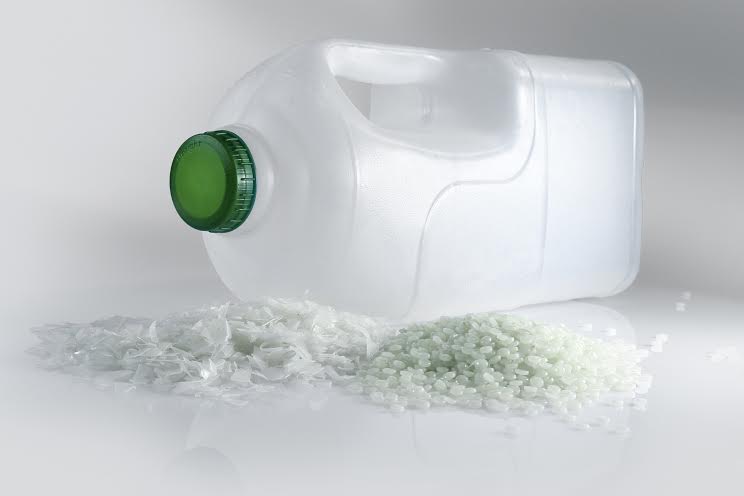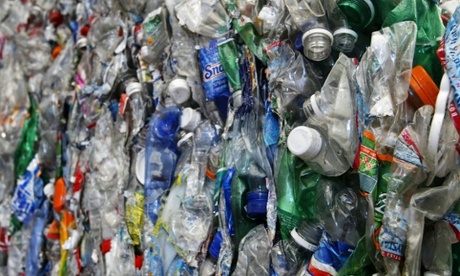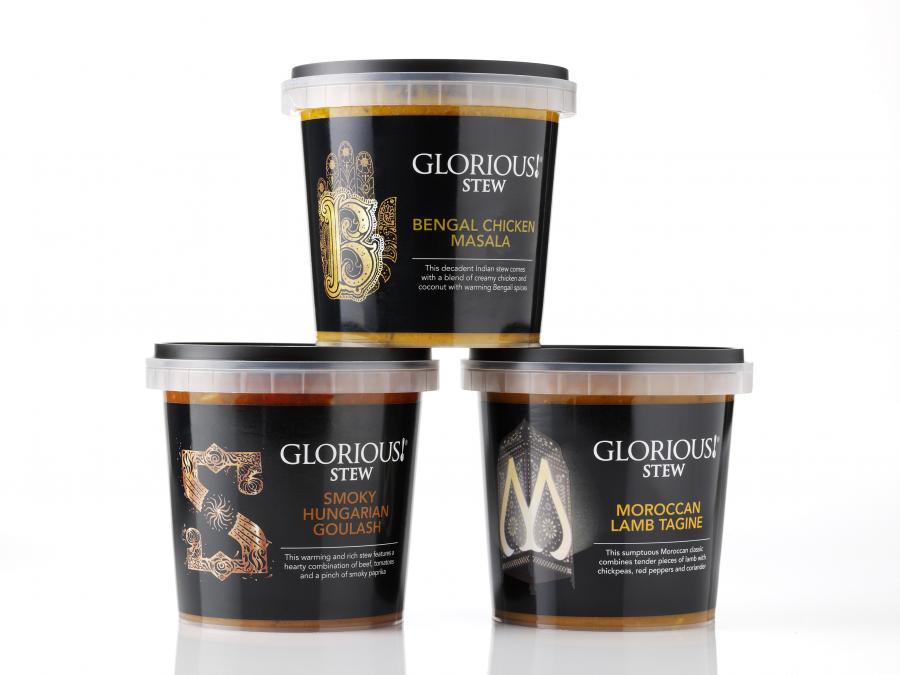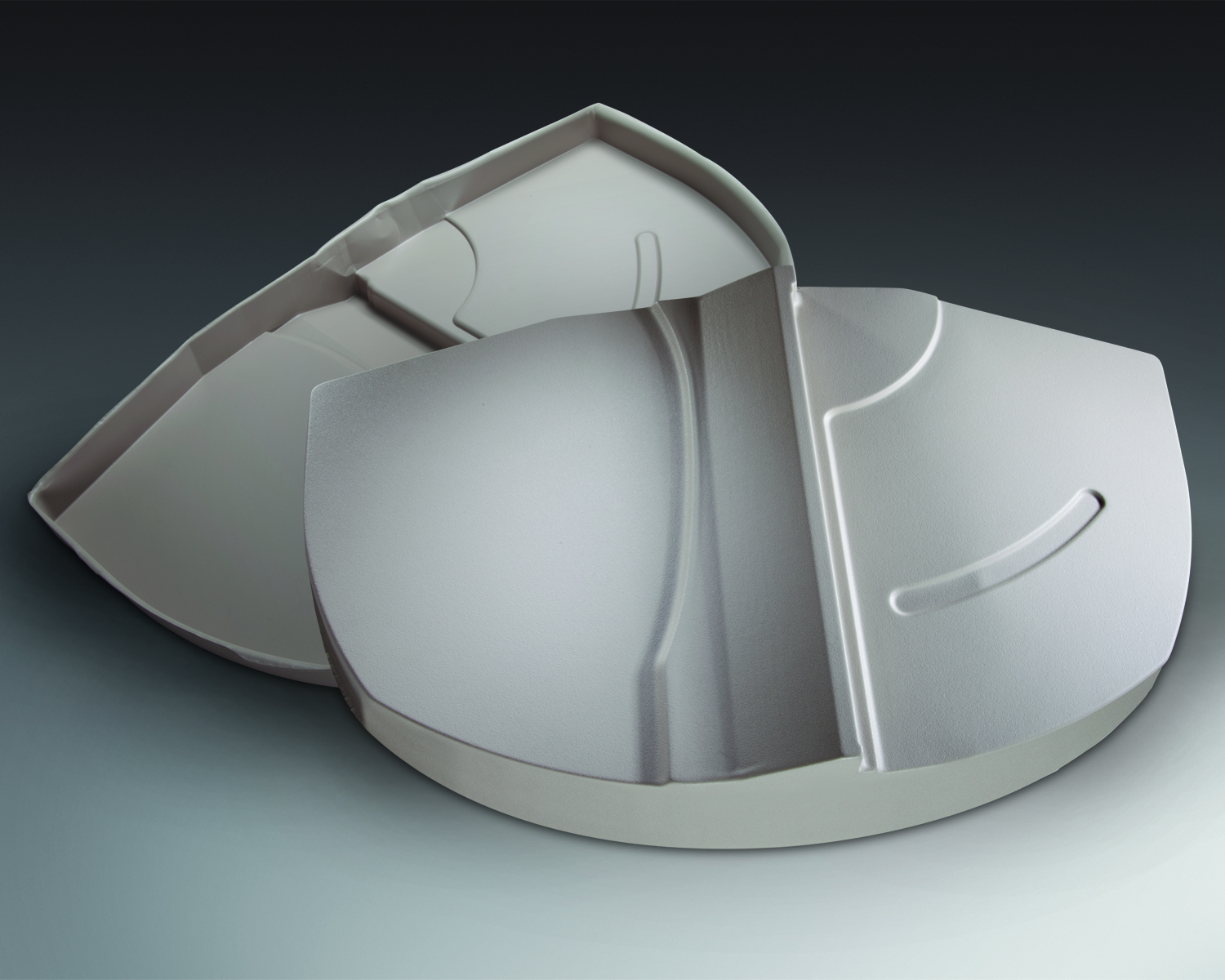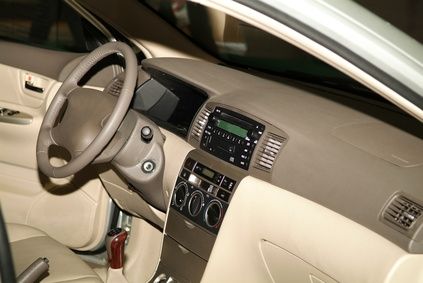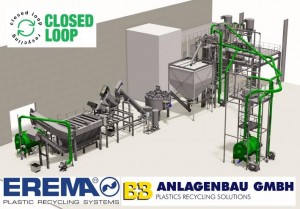
When Closed Loop London began producing food contact grade HDPE from transparent bottle material back in 2008 it was B+B Anlagenbau GmbH and EREMA Engineering Recycling Maschinen und Anlagen GmbH who provided the technical solution for this pioneer work. The successful collaboration has now been continued through the expansion of the existing plant capacity to 4,800 kg/h in total.
Process
The processing steps comprise Dry cleaning – Air classification – Hot wash – Sink float separation– Mechanical drying from B+B and subsequent extrusion with upstream decontamination from EREMA. This process enables Closed Loop London to produce rHDPE pellets from HDPE milk bottles for direct food contact in line with efsa requirements.
High-quality material treatment
The basic principle of B+B’s plant concept is to treat the regrind material in a dry state as long as possible while it is in the process. This means that expensive resources such as water can be saved and no elaborate plant engineering is required for processing.
The core component of the washing facility is the hot wash which removes any unwanted elements such as stickers or adhesives from the regrind material. This particular application also features the removal of milk residues and the associated odours as a crucial part of the cleaning process. The hot wash system works continuously and is fully automatic to ensure maximum availability and minimum maintenance intervals.
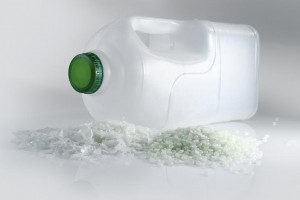
Efficient decontamination and extrusion
In the subsequent extrusion process food contact grade HDPE regrind material is made on two VACUREMA® Advanced 1716 TE systems which is then reused in the production of milk bottles. Closed Loop London ordered what is now the third of these systems – each with a capacity of 7,000 t/year – as part of the expansion.
With a market share of 50% in the USA and 30% in Europe, VACUREMA® technology from EREMA for the processing of rPET for direct food contact has proven itself on a global scale. The concept also works in a slightly modified form for the recycling of food contact grade HDPE pellets which requires an additional extruder degassing.
The deciding success factor of VACUREMA®, however, is above all the highly efficient, food contact compliant decontamination UPSTREAM of the extrusion process. The patented pre-treatment of the HDPE flakes at raised temperature and in high vacuum before the extrusion process removes moisture and migration materials from the feedstock very effectively and in a stable process environment.
Another benefit for the user is that the parameters for direct food contact compliance are monitored and archived continuously in the recycling process on all VACUREMA® systems. The Food Contact Control (FCC) feature supervises the recipe data stored and if levels go beyond defined limits an alarm is triggered automatically and (optionally) material flow is diverted away from current production.
Worldwide interest in high-quality washing process
Higher-quality washing processes have posted significant growth in recent years as the cold wash used previously for the processing of polyolefins was not able to remove what was in part a strong odour. If these plastic regrind materials are then extruded, the end products made from them are often suitable only for outdoor use.
A number of potential users are now looking into using more enhanced processes such as those offered by B+B for the production of odourless recycled pellets. In the USA, for example, polyolefin repellets are already being used in the washing detergent and cosmetics industries. B+B has commissioned hot wash systems of this kind for HDPE around the world with an annual capacity already in the region of 90,000 t.
Contact:
B+B Anlagenbau GmbH
Girmesgath 5
47803 Krefeld
[email protected]
0049 2151 6444920

